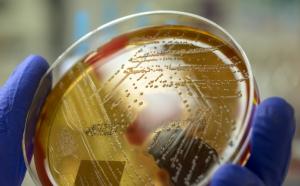The Link Between Gut Bacteria and Atherosclerosis

A recent study found a link between the levels of certain bacteria that live in the gut and coronary atherosclerotic plaques. These plaques are formed by the buildup of fat and cholesterol deposits and are one of the leading causes of heart attack.
The study, published in Circulation and run by researchers from Uppsala and Lund Universities in Sweden, was based on analyses of gut bacteria and heart imaging in 8,973 participants ages 50 to 64 who did not have previously known heart disease.
“We found that oral bacteria, especially species from the Streptococcus genus, are associated with increased occurrence of atherosclerotic plaques in the small arteries of the heart when present in the gut flora,” said Tove Fall, a professor of molecular epidemiology at Uppsala University and the study coordinator.
Species from the Streptococcus genus, which commonly cause pneumonia and throat, skin, and heart valve infections, may also contribute to the development of atherosclerosis, according to the researchers.
An advanced technology that can sequence and compare DNA content in biological samples aided the analysis. At the same time, improved imaging techniques allowed them to detect and measure early changes in the small blood vessels of the heart.
How did they reach this conclusion?
The group of specialists examined the coronary arteries, which are the main arteries responsible for supplying blood to the heart, using computed tomography techniques. This allowed them to measure the amount of calcium in these arteries, which is an early indicator of atherosclerosis.
They found a connection between gut microbiota and coronary atherosclerosis, as people with certain bacteria, such as Streptococcus anginosus and Streptococcus oralis, had more calcium in their coronary arteries.
They also discovered that some gut bacteria were associated with inflammatory markers in the body, which could indicate health problems in general. What’s more, they recognized that other bacteria are associated with dental problems.
Identification of these novel associations was possible thanks to the large number of samples with high-quality heart imaging and gut flora data, said the authors. The samples were obtained from the Swedish Cardiopulmonary Bioimage Study (SCAPIS), which is one of the largest collections of these two types of data in the world.
“We have just started to understand how the human host and the bacterial community in the different compartments of the body affect each other,” said Marju Orho-Melander, a professor of genetic epidemiology at Lund University and one of the study’s lead authors. “Our study shows worse cardiovascular health in carriers of streptococci in their gut. We now need to investigate if these bacteria are important players in atherosclerosis development.”
Atherosclerosis increases the risk of cardiovascular disease, which is currently the leading cause of death worldwide. Each year, it claims an estimated 18 million lives (2 million in Latin America and the Caribbean).
Maintaining a healthy weight; doing regular exercise; eating a diet rich in fruits, vegetables, grains, and legumes; controlling stress; avoiding tobacco; and limiting alcohol consumption are all key ways to prevent or delay the onset and progression of atherosclerosis.
This story was produced using content from original studies or reports, as well as other medical research and health and public health sources cited in links throughout the article.
© 2025 Pan-American Life
